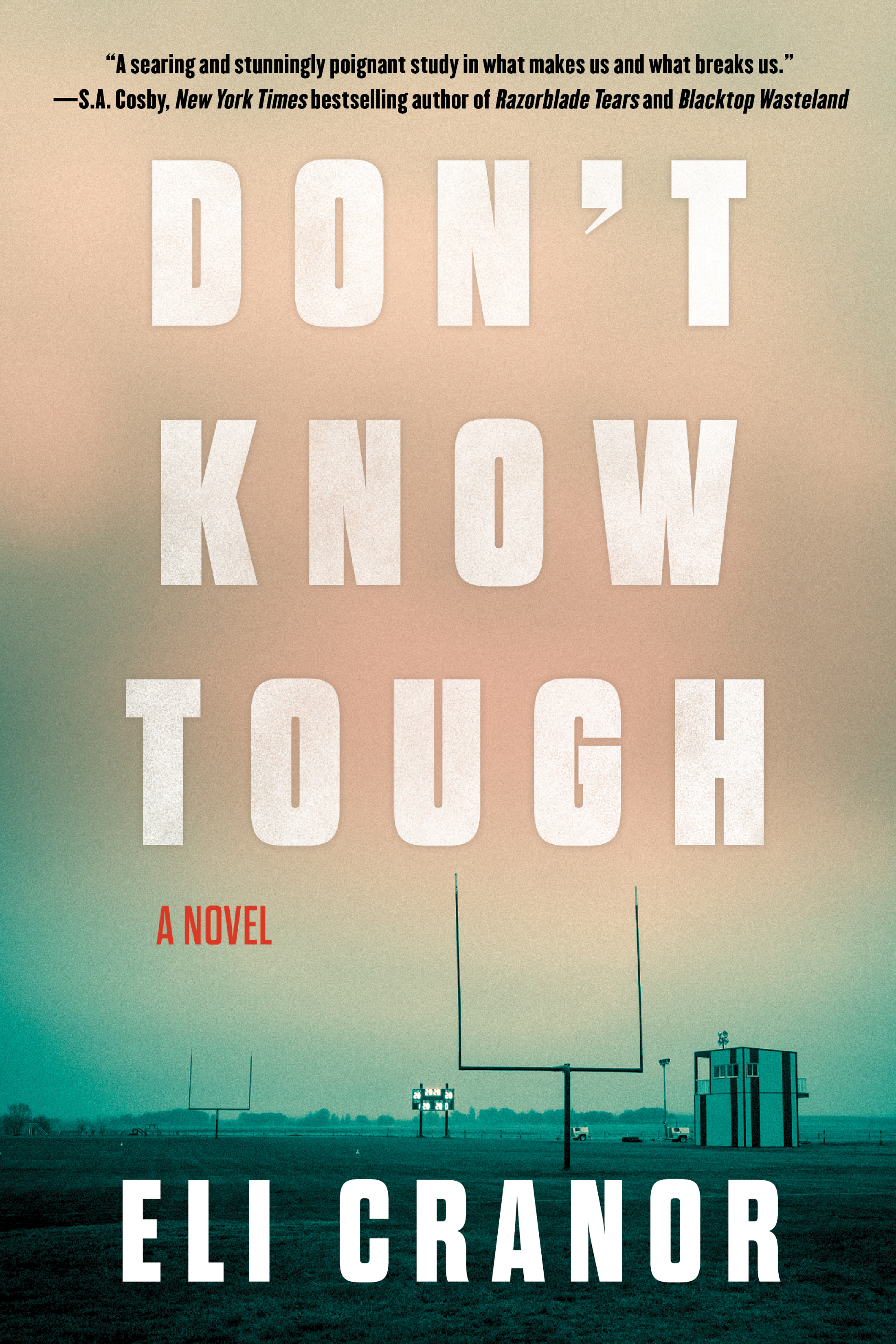A Novel That Knows What Football Means in the South
Reviews
By Gabino Iglesias
It’s hard to create a narrative that offers an unflinching look at the dark side of Americana without sounding judgmental, but that’s exactly what Eli Cranor has done with Don’t Know Tough. At once a crime novel packed with violence and desperation, a modern Southern Gothic tale drenched in darkness, and a touching, brutally honest take on football as religion, Don’t Know Tough is the kind of story that isn’t afraid to hurt readers. But it does so in order to show them the core of a culture they might not otherwise see.
Football is everything in Denton, Arkansas. With the end of the season looming, the fate of the Denton Pirates, the local high school football team, is tied to the team’s top player: the best running back most people have ever seen, a struggling, violent young man named Billy Lowe. Billy lives in a trailer with his mother, baby brother, and his mother’s abusive boyfriend. The situation at home and Billy’s proclivity for violence are not a good mix, and while he manages to use a lot of his pain and frustration to drive him on the field, he’s also constantly getting into fights. In fact, he’s facing suspension for a recent outburst that left a kid with a shattered face.
The Pirates’ new head coach, Trent Powers, knows that the team will get nowhere without Billy. If they fail, he will be out of a job. Trent, who just moved to Denton from California with his wife and two children, is a patient, somewhat quiet man who drives a Prius, so he’s had a hard time fitting in. The Billy situation makes things worse and stirs resentment at home; his family moved to Denton just for him, and losing is not an option. So Trent comes up with a plan to save Billy and himself: he takes Billy into his home and tries to get him to behave. However, Billy is leaving behind a night of violence that somehow left his mother’s boyfriend lying in a pool of blood in the trailer’s kitchen. With the playoffs on the line, the mayhem at the trailer points to Billy despite the fact that all he did was throw a punch in self-defense. With tensions running high, no one can escape the chaos that follows.
Cranor does a lot of things well with this story. Chief among them is that he chooses to tell it from different points of view. If we only saw things from Trent’s perspective—or that of his wife or colleagues—Billy would appear as an uncontrollable animal, a young man full of testosterone, insecurities, and anger. However, Billy is also a narrator here, and that pulls readers into his world and shows them the effects of anger, abandonment, poverty, and abuse. Seeing things from Billy’s perspective and watching as he tries to do better, reads Hemingway for the first time, and cares for his baby brother creates the kind of empathy that makes the novel memorable. Moreover, we see that he’s not as dumb as everyone thinks he is just because of the way he speaks: “The mind weak, tell you all kinds of things, but the body—bone and blood and muscle—them things don’t lie.”
The second element that makes Don’t Know Tough stand out is its authenticity. Cranor has spent his entire life immersed in the culture of football, starting in the Pee Wee leagues and making it all the way to the pros before moving on to coaching. He knows that what happens on the field has a ripple effect on everyone involved. He understands that small towns often have nothing bigger or better going than their local football games. In a nutshell, he knows what football means in the South, and he shows that here.
Bradshaw’s threats, Timmons’s questions, Billy’s missing family, any and all worries from before are absolved between the lines of the football field. It should be illegal, Trent thinks, the power the game has over men, a blinding, burning feeling—a drug—that’s what football is. And for the winners there are no warning labels, no side effects or hangovers, nothing except the pure, undiluted knowledge that you are superior to your fellow man.
The authenticity mentioned above, combined with great character development, sharp dialogue, plenty of emotional turmoil, and a healthy dose of violence, makes Don’t Know Tough a superb debut that announces the arrival of a unique voice in crime fiction. Keep Eli Cranor on your radar, and don’t skip out on this one.
Gabino Iglesias is a writer, professor, and book reviewer living in Austin, Texas. He is the author of Zero Saints, Coyote Songs, and The Devil Takes You Home (forthcoming summer 2022). You can find him on Twitter @Gabino_Iglesias.
More Reviews

